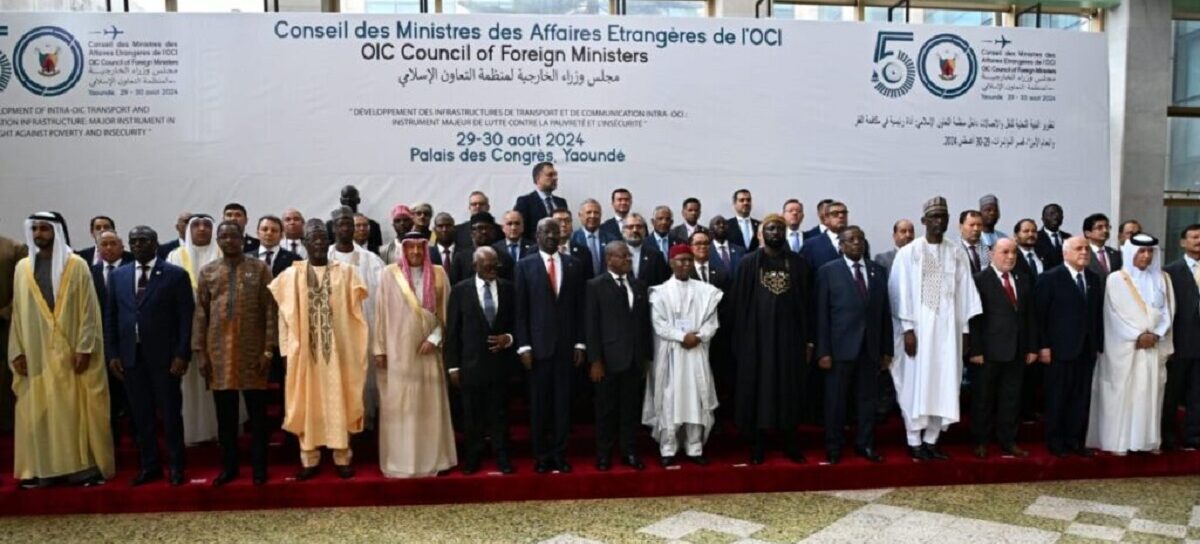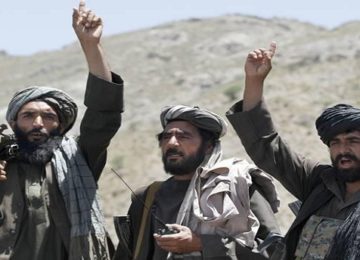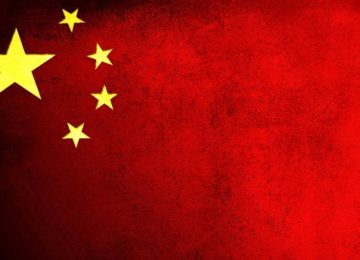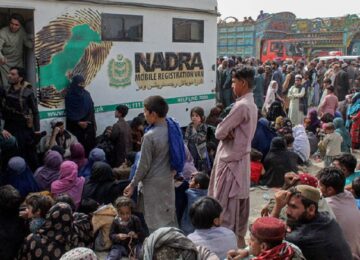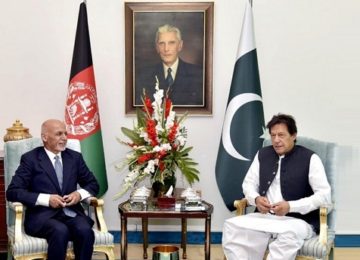BY Gul Wareen
The OIC’s recent meeting highlighted a pivotal challenge: balancing the necessity of political engagement with the Taliban against the moral imperative to stand against its systemic abuse of women’s rights.
The 50th session of the Organization of Islamic Cooperation (OIC) Council of Foreign Ministers, held on August 29-30, 2024, in Cameroon, became a focal point for discussions on a range of pressing global issues. Alongside the Palestinian issue and the Middle East peace process, the developments in Afghanistan were also discussed. These included its security, humanitarian and economic challenges including efforts to combat terrorism and drug trafficking. Taliban’s current decisions on girls’ education and women’s employment were also reviewed, which drew significant attention.
The session was attended by a Taliban delegation, led by their acting Foreign Minister, Amir Khan Muttaqi. During his meeting with Tarig Ali Bakheet, the Assistant Secretary-General of the OIC, the latter reiterated the need for the Taliban to reconsider its stance on women’s education and employment.[1]
The Taliban’s return to power in August 2021 has drastically altered the lives of millions of Afghans, particularly women and girls. Since then, the regime has imposed harsh restrictions, including bans on girls’ education and limitations on women’s participation in the workforce. The OIC has consistently called on the Taliban to reverse these decisions, urging the group to uphold basic human rights, especially the rights of women.
Despite these diplomatic engagements, the Taliban’s approach to governance continues to raise concerns. A new set of laws was introduced by the Taliban on August 21, claiming that they were encouraging virtue and preventing vice. These laws, contained within a 114-page document, impose severe restrictions on the daily lives of Afghans, with a particular focus on controlling the behavior of women. The regulations mandate that women must cover their entire bodies and faces when leaving their homes and prohibit women from speaking publicly.[2] These rules reflect the Taliban’s regressive ideology and further entrench gender inequality in Afghanistan.
While Western nations have largely shunned the Taliban due to their human rights abuses, regional actors have adopted a more pragmatic approach, engaging with the regime in hopes of moderating its behavior. Countries neighboring Afghanistan are primarily concerned with security and economic stability, believing that dialogue with the Taliban might eventually lead to a more stable and cooperative Afghanistan. However, this strategy has its limitations, as the Taliban’s continued oppression of women undermines efforts to integrate the regime into the international community.[3]
The exclusion of Muttaqi from the official group photo at the OIC conference symbolized the international community’s reluctance to embrace the Taliban as a legitimate government fully. This exclusion, which mirrored a similar incident at the 2021 OIC meeting in Islamabad, underscores the ongoing tensions between the Taliban and the broader Muslim world.[4] Despite these symbolic gestures of ‘conditional engagement’ with the Taliban, the reality on the ground in Afghanistan remains dire, with women and girls bearing the brunt of the de facto administration’s draconian policies.
While engagement with the regime is crucial for addressing political and economic realities, the humanitarian crisis—especially the systemic violation of women’s rights—complicates these efforts. The OIC’s efforts to pressure the Taliban into reversing its restrictive policies have so far met with limited success, underscoring the difficulty of influencing a regime committed to its fundamental ideological beliefs.
To ensure that Afghan women are not forgotten in the global discourse, the international community, including the OIC, could take several targeted actions:
Leveraging Recognition: As the Taliban regime seeks recognition, the international community could play a fundamental role in ensuring the Taliban upholds and respects women’s rights. Regional as well as global actors should make the legitimacy of the Taliban government conditional upon its commitment to these obligations.
Condition-based Humanitarian Aid: Since the Taliban took power, reports indicate that they have received $1.593 billion in aid from the international community.[5] Given the international community’s leverage over the Taliban due to their dependence on this aid, the assistance should be contingent upon the protection of women’s rights. Humanitarian aid must also include gender-specific conditions, guaranteeing that Afghan women and girls have access to education, healthcare, and employment opportunities. To ensure these resources reach those in need, aid should be distributed through local NGOs and international organizations, bypassing the Taliban when necessary, to directly support Afghan women and girls.
Targeted Sanctions: The international community should consider imposing targeted sanctions on Taliban officials responsible for oppressive policies against women. These sanctions could involve freezing overseas assets, restricting travel, or limiting access to international resources. Such actions would signal that the violation of women’s rights will have consequences, while avoiding harm to the broader Afghan population.
To put it simply, the rights of women and girls in Afghanistan cannot be overlooked as the international community engages diplomatically with the Taliban. By doing so, the international community ignores its own commitments to human rights for everyone everywhere which is the real promotion of virtue and elimination of vice.
[1] Amu TV. (2024, August 29). OIC official urges Taliban to reconsider stance on women’s education, employment. https://amu.tv/120335/
[2] Ochab, E. U. (2024, August 27). Taliban’s law promoting virtue and eliminating vice or as we call it – gender apartheid. Forbes. https://www.forbes.com/sites/ewelinaochab/2024/08/26/talibans-law-promoting-virtue-and-eliminating-vice-or-as-we-call-itgender-apartheid/
[3] Smith, G. (2024, April 18). Rethinking Talks with the Taliban. International Crisis group. https://www.crisisgroup.org/asia/south-asia/afghanistan/rethinking-talks-taliban
[4] Amu Tv (2024, August 29). OIC official urges Taliban to reconsider stance on women’s education, employment. https://amu.tv/120335/
[5] Zada, S. Q., & Zada, M. Z. Q. (2024). The Taliban and women’s human rights in Afghanistan: the way forward. The International Journal of Human Rights, 1–36. https://doi.org/10.1080/13642987.2024.2369584

Gul Wareen is an intern at CRSS with a strong academic background in International Relations, focusing on Pak-Afghan dynamics. She is a contributing author at Friday Times, and her interests include strategic studies, counterterrorism, and advocating for women’s rights.



